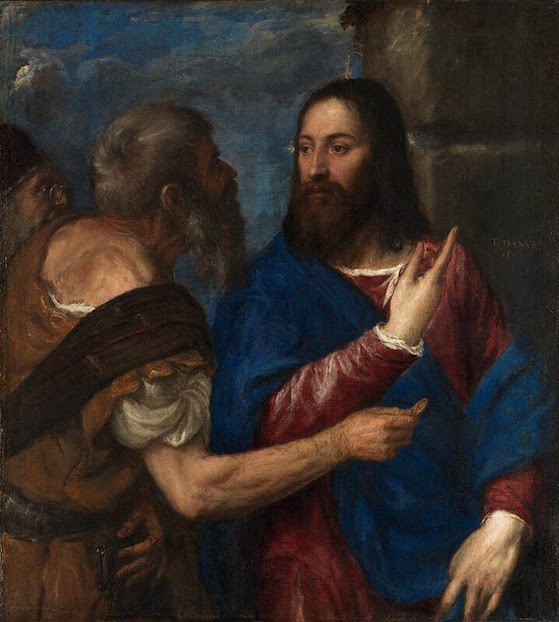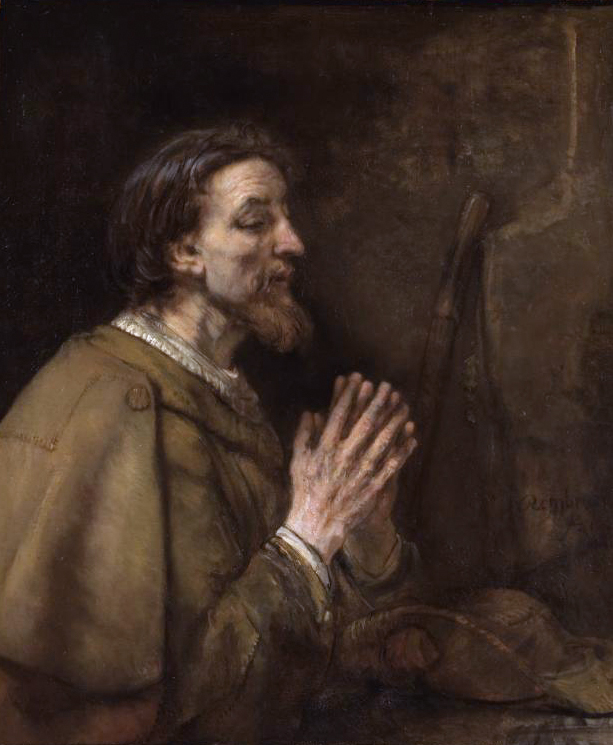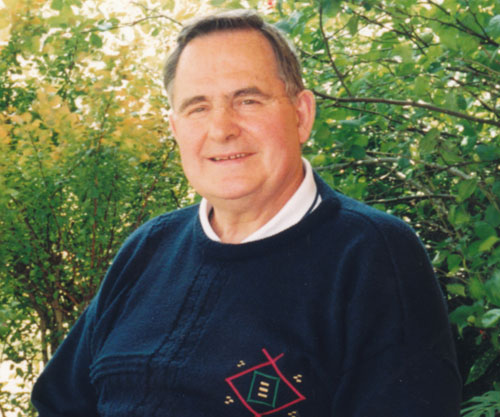Readings (Jerusalem Bible: Australia, England & Wales, Ireland, New Zealand, Pakistan, Scotland)
Readings (New American Bible: Philippines, USA)
Gospel Matthew 22:15-21 (English Standard Version Anglicised, India)
Then the Pharisees went and plotted how to entangle him
in his words. And they sent their disciples to him, along
with the Herodians, saying, “Teacher, we know that you are true and
teach the way of God truthfully, and you do not care about anyone's
opinion, for you are not swayed by appearances. Tell us, then, what you think. Is it lawful to
pay taxes to Caesar, or not?” But Jesus, aware of their malice, said, “Why put me to the test, you hypocrites? Show me the coin for the tax.” And they brought him a denarius. And Jesus said to them, “Whose
likeness and inscription is this?”
They said, “Caesar's.” Then he said to them, “Therefore render
to Caesar the things that are Caesar's, and to God the things that are God's.”
This Sunday is World Mission Day (or Mission Sunday). It happens that the readings for the Mass of the day have a strong missionary dimension. They include the sense of God calling us by name and of our receiving the mission to make Jesus Christ known to the world: I call you by your name . . . I equip you, though you do not know me, that people may know, from the rising of the sun and from the west, that there is none besides me; I am the Lord, and there is no other (First Reading).
Psalm 95 (96) used for the Responsorial Psalm adds to the missionary dimension: Oh sing to the Lord a new song; sing to the Lord, all the earth! Declare his glory among the nations, his marvellous works among all the peoples! . . . Worship the Lord in the splendour of holiness; tremble before him, all the earth! Say among the nations, 'The Lord reigns! . . . he will judge the peoples with equity.'
Though in the Sunday in Ordinary Time the Second Reading is not linked thematically with the First Reading and the Gospel, today's Second Reading is very much in harmony with the other two. In writing to the people of Thessalonica St Paul thanks God for their work of faith and labour of love and steadfastness of hope in our Lord Jesus Christ. For we know, brothers loved by God, that he has chosen you, because our gospel came to you not only in word, but also in power and in the Holy Spirit and with full conviction.
The Gospel too calls us to be missionaries. Jesus tells the Pharisees trying to trap him: Therefore render to Caesar the things that are Caesar's, and to God the things that are God's.
Often enough these words, I think, are interpreted as if rendering to Caesar what is Caesar's and rendering to God what is God's were in opposition. That is not so. Our involvement in the world of Caesar is meant to be in harmony with God's will. Two things that struck me very clearly during and after the Second Vatican Council, which occurred when I was in the seminary in the 1960s, was that it reminded us that God calls every single one of us to be a saint, not only priests and religious. The second was that lay people by virtue of their baptism were called to be fully involved in what we may call the world of Caesar, working for the good of all.
This includes the world of politics, whether we are elected officials or voters. Our faith has a bearing on what we do. I remember in the autumn of 1982, when I was on a three-month intensive pastoral programme in Minneapolis, going to a bank there. When the official I was dealing with discovered I was based in the Philippines he told me that in the previous election in the USA he considered, among other things, how his vote would affect the Philippines, which was under martial law at the time.
We weren't talking party politics and I don't think the man was a Catholic. He was probably a Lutheran, since most of the people in Minneapolis have roots in Norway and Sweden, where the vast majority are Lutherans. (The other Twin City, St Paul, has a large Catholic population, the majority of those having Irish and German roots.) I saw in that man who took his vote so seriously an example of what the Vatican Council had in mind for us Catholics as citizens.
Most issues that politicians and voters deal with are matters of prudential judgements on what is best for the common good. People may take different positions on what they consider best for the good of all. Whether to build a road here or there, for example, isn't a matter of right or wrong but of what legislators think is best for the common good. They may have different views on this.
But there are political issues where as followers of Jesus Christ we can make only one choice because the choice is between what is right and what is wrong. No Catholic may vote or legislate in favour of abortion, for example, promote 'marriage' between two persons of the same sex, push for the 'right' to change from one sex to another, a biological impossibility, that has led to the scourge of minors in some countries being genitally mutilated, this being allowed by the law.
Yet there are heads of government and other politicians who claim to be practising Catholics who promote these things and many Catholic voters who vote in favour of these policies. This is a form of rendering to Caesar what is in clear opposition to God's will. It is a form of rendering to Caesar that is extremely harmful to Caesar, not to mention to the souls of those who take these positions.
It is a rejection of the teaching of the Church that the Second Vatican Council re-emphasised and can lead, if we do not repent, to an eternity where Caesar will no longer exist and where it will be impossible to render anything to God.
+++
In my first encyclical, in which I set forth the program of my Pontificate, I said that 'the Church's fundamental function in every age, and particularly in ours, is to direct man's gaze, to point the awareness and experience of the whole of humanity toward the mystery of Christ.'
The Church's universal mission is born of faith in Jesus Christ, as is stated in our Trinitarian profession of faith: 'I believe in one Lord, Jesus Christ, the only Son of God, eternally begotten of the Father.... For us men and for our salvation he came down from heaven: by the power of the Holy spirit he became incarnate from the Virgin Mary, and was made man.' The redemption event brings salvation to all, 'for each one is included in the mystery of the redemption and with each one Christ has united himself forever through this mystery.' It is only in faith that the Church's mission can be understood and only in faith that it finds its basis.
Laudete Dominum (Praise the
Lord)
Omnes Gentes (All the People) Alleluia!
Composer Jacques Berthier composed hymns for the ecumenical Taizé Community where Scripture verses are repeated, the refrain in Latin and the verses and sometimes the refrain in a contemporary language, as in the video above. Latin/French here. Latin/Malayalam here; Malayalam is spoken in Kerala, India, where most of the Christians are members of the Syro-Malabar Catholic Church, in full communion with Rome.
Traditional Latin Mass
Twenty-first Sunday After Pentecost
The Complete Mass in Latin and English is here. (Adjust the date at the top of that page to 10-22-2023 if necessary).
Epistle: Ephesians 6:10-17. Gospel: Matthew 18:23-35.













